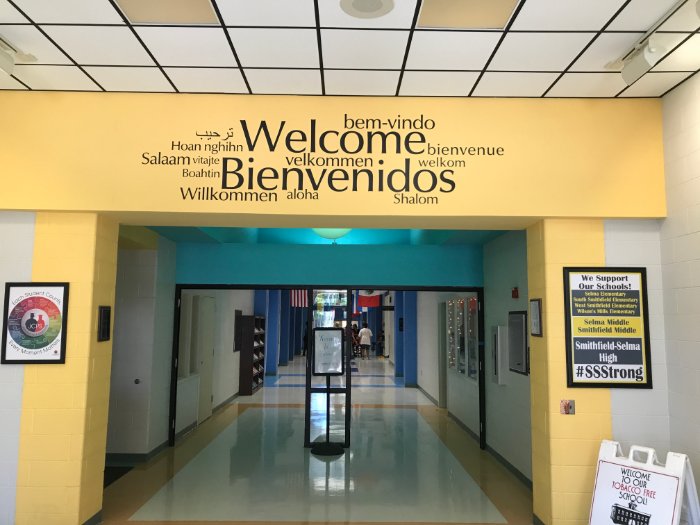At Selma Elementary School in Johnston County, educators are kicking off the school year in partnership with the NC Resilience and Learning Project with the goal of becoming a trauma-informed school.
“We believe that this work will allow us to become the type of school in which all students feel safe and ready to be successful,” said Selma’s school counselor, Latrieva Wilson.
Wilson says a large percentage of Selma Elementary’s students, as well as their families, have experienced or are currently experiencing traumatic situations or events. Educators and the administration at Selma are aware of the impact that trauma can have on students’ behavior, learning outcomes, and social interactions with other children and adults. As the increased prevalence of trauma for students and families was something that counselors, social workers, classroom teachers and instructional assistants became more familiar with and were hearing more and more stories and witnessing concerning situations, many felt unequipped and unsure of how to best support their students and their families.
“Very quickly, we were noticing that our staff was experiencing burnout due to feelings of defeat and helplessness,” said Wilson. Together with her colleagues, she started researching what other schools had done in this situation, and incorporating trauma-informed practices was something they were seeing over and over. “When we found out about the opportunity to work with the Resilience Project and all of the support that they could provide our staff with, we poured all of our energy into the application process and crossed our fingers and toes, because we knew this was just what our kids and staff needed.”
Educators at Selma are excited to work with the NC Resilience and Learning Project to build on the foundation they gained last year when staff implemented the Capturing Kids’ Hearts (CKH) framework. CKH is a school-wide program that focuses heavily on creating a positive and supportive school culture by focusing on relationship building.
“Something that we are excited to try this school year is based around the following quote: ‘Almost everything will work again if you unplug it for a few minutes, even you.’” said Wilson.
Selma’s school counselors have created two separate spaces in the Counseling Suite to provide spaces for teachers and students to have a central, judgment-free location to unplug and utilize strategies to reduce burnout. The Peace Room, which is designated for students experiencing any form of emotional dis-regulation, is a calming and nurturing environment in which counselors will work with students one-on-one to find and explore calming techniques and strategies. The Peace Room has sensory tools, soothing sounds, coloring sheets, and various flexible seating, including comfortable spaces for children to use. The lighting is dim and there are calming visuals all around.
Selma has also developed a similar space for their teachers, in which they can use a tap-in tap-out method or during their planning or lunch time to take a few minutes to unwind and have a break. This room is available for all staff members, and similar to the Peace Room, features dim lighting and a variety of resources for calming down or resetting. Staff members are able to do short guided meditations, doodle, listen to music or just relax. Selma’s principal and assistant principals recently met with teachers and encouraged them to utilize this room, Wilson said, and to take care of themselves, emphasizing the reality of compassion fatigue and the risk of burnout.
“We will also follow up every Peace Room visit with a session with a counselor to make a plan and ensure that students have the opportunity to practice coping strategies that work best for them,” said Wilson. “It is also our hope that Selma staff will use their room to recognize the importance of self-care for themselves and reduce their risk of burnout. And we are so excited to work with the NC Resilience and Learning Project to learn more ways to support and push us forward on our journey towards becoming a trauma-informed campus.”

